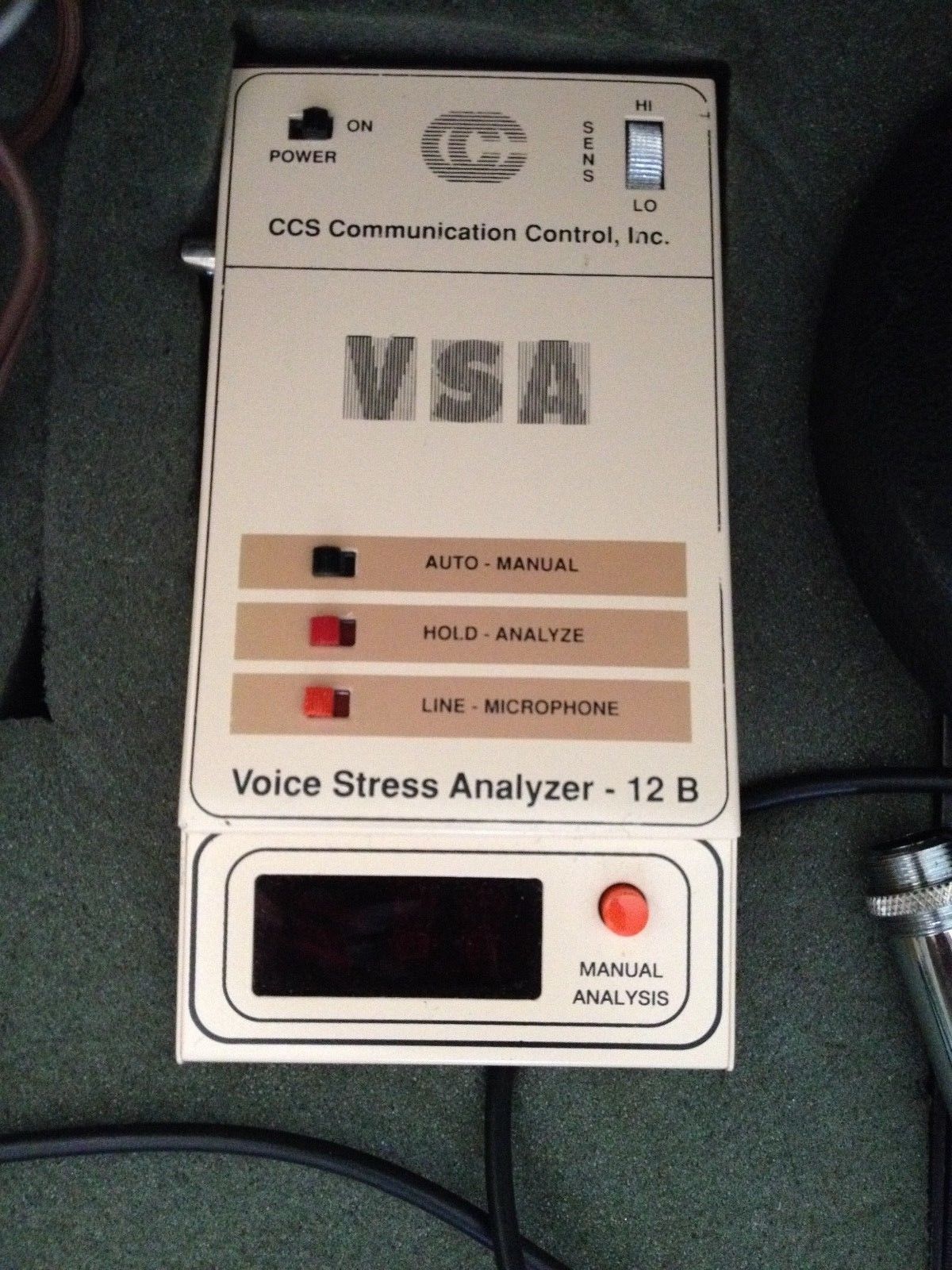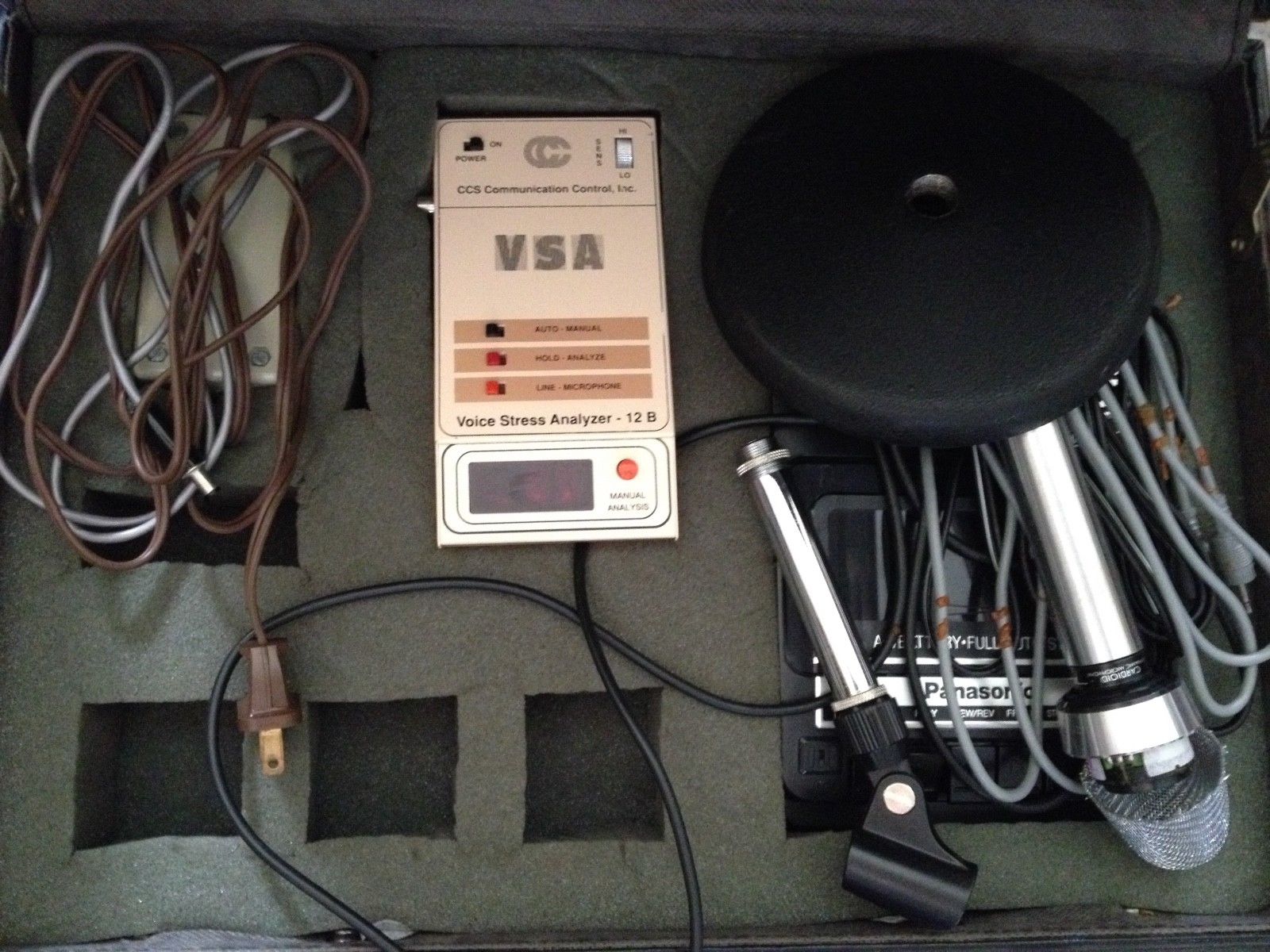Voice Stress
Voice Stress Analysis

Voice stress analysis (VSA) and computer voice stress analysis (CVSA) are collectively a pseudoscientific technology that aims to infer deception from stress measured in the voice. The CVSA records the human voice using a microphone, and the technology is based on the tenet that the non-verbal, low-frequency content of the voice conveys information about the physiological and psychological state of the speaker. Typically utilized in investigative settings, the technology aims to differentiate between stressed and non-stressed outputs in response to stimuli (e.g., questions posed), with high stress seen as an indication of deception.
The use of voice stress analysis (VSA) for the detection of deception is controversial. Discussions about the application of VSA have focused on whether this technology can indeed reliably detect stress, and, if so, whether deception can be inferred from this stress. Critics have argued that—even if stress could reliably be measured from the voice—this would be highly similar to measuring stress with the polygraph, for example, and that all critiques centered on polygraph testing apply to VSA as well. A 2002 review of the state of the art conducted for the United States Department of Justice found several technical challenges to the technology, including the same problem of determining deception. When reviewing the literature on the effectiveness of VSA in 2003, the National Research Council concluded, “Overall, this research and the few controlled tests conducted over the past decade offer little or no scientific basis for the use of the computer voice stress analyzer or similar voice measurement instruments”.1:168 A 2013 paper published in Proceedings of Meetings on Acoustics reviewed the "scientific implausibility" of its principles and "ungrounded claims of the aggressive propaganda from sellers of voice stress analysis gadgets".
Confession made following a voice stress examination was allowed to be used as evidence in a case in Wisconsin in 2014. In the case of the murder of 12-year-old Stephanie, Crowe confessions were made while three suspects were undergoing VSA which were later found to be false by a judge; the manufacturer of the VSA equipment later settled a lawsuit that alleged that it was liable for the harm the three suspects suffered. In a similar case, Donovan Allen falsely confessed to killing his mother after failing a VSA test. He was acquitted 15 years later based on exonerating DNA evidence. George Zimmerman was given a VSA after he fatally shot Florida teenager Trayvon Martin in 2012.


The Mark II Voice Stress Analyzer
The Mark II Voice Stress Analyzer is the most advanced, accurate and simple instrument of its kind. It allows the user to automatically detect, measure and analyze the exact degree of psychological stress in a word or phrase spoken by anyone. It can be used in person, through recorded messages or by telephone, or in radio communications.
When a subject tries to cheat, or has emotional difficulty with certain questions, he will experience psychological distress. Any misrepresentation or psychological stress induced by stimuli causes a lack of synchronization between the control of the voice of the brain and the mechanism of the voice in the throat. This stress connection produces an inaudible roughness in the voice called tremolo. Tremolos related to stress occurs uniformly in all human allocations, independent of language or sex.
With this in mind, the Mark II applications are incredible. Traders or entrepreneurs concerned with critical negotiations or personal evaluations, law enforcement agencies and intelligence organizations will find the Mark II very useful. It has new applications for trainings where stress and emotional reactions are a priority, and can be used for medical-psychiatric diagnosis.
The unit is equipped with digital or printed display, which helps in the interpretation and analysis of the final results. The Mark II is totally portable, contained in an attractive briefcase.

Leon J.M. Rothkrantz, Pascal Wiggers, Jan-Willem A. van Wees, and Robert J. van Vark Data and Knowledge Systems Group Delft University of Technology Mekelweg 4, 2628 CD Delft, The Netherlands This email address is being protected from spambots. You need JavaScript enabled to view it. , This email address is being protected from spambots. You need JavaScript enabled to view it. Abstract
It was a long time after the Polygraph that two new techniques came along,
Polygraph Machine, and Statement Analysis
![]()
POLICE INFORMATION
If you have copies of: your Baltimore Police Department Class Photo, Pictures of our Officers, Vehicles, Equipment, Newspaper Articles relating to our department and or officers, Old Departmental Newsletters, Lookouts, Wanted Posters, and or Brochures. Information on Deceased Officers and anything that may help Preserve the History and Proud Traditions of this agency. Please contact Retired Detective Kenny Driscoll.

NOTICE
How to Dispose of Old Police Items
Please contact Det. Ret. Kenny Driscoll if you have any pictures of you or your family members and wish them remembered here on this tribute site to Honor the fine men and women who have served with Honor and Distinction at the Baltimore Police Department. Anyone with information, photographs, memorabilia, or other "Baltimore City Police" items can contact Ret. Det. Kenny Driscoll at
Copyright © 2002 Baltimore City Police History - Ret Det Kenny Driscoll

